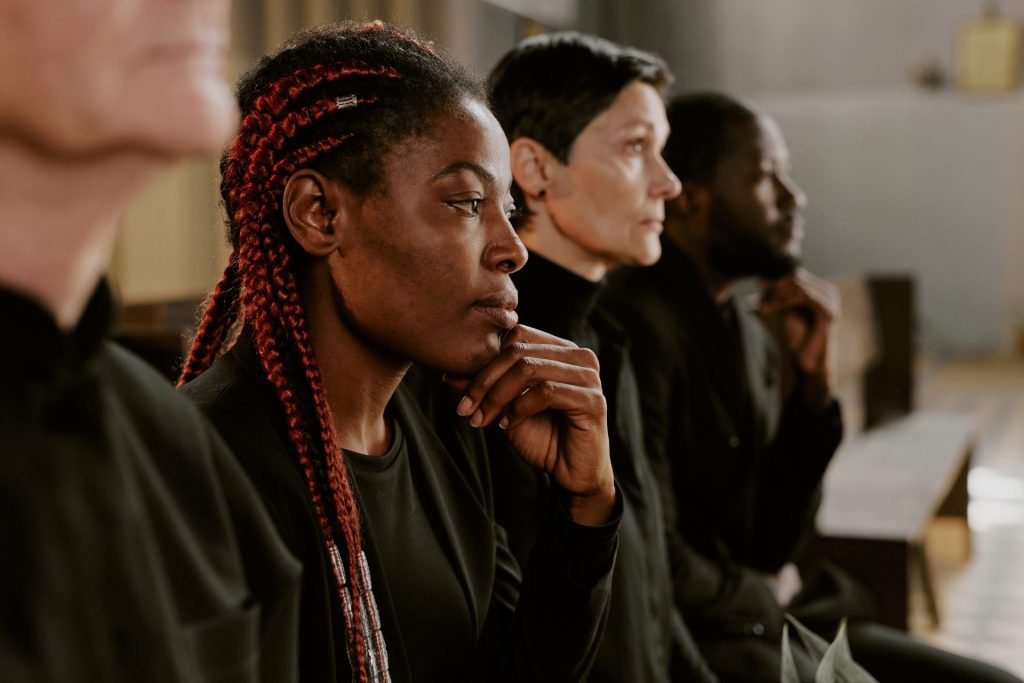Do we need to decolonise bereavement and grief’ ?
What does bereavement and death mean to you? Where do you go to get a better understanding of these concepts that shape our experiences of living and dying? Is it helpful to see ‘bereavement and grief’ as aspects of ‘mental health’ or something else, something more? Would it be more open-ended to think about the broad experiences of death and its aftermath in the continuing lives of the living?
My own life isn’t neatly demarcated in clear cut spaces – my academic life reflects my personal life, and I have always wanted my academic work to be relevant to people’s everyday living. 25 years ago my husband was diagnosed with terminal cancer, when our daughter was aged 4, and he died 8 months later.
In my work life (over decades) I’m a sociologist with a focus on ‘families’ and relational lives. This additional traumatic personal experience drew my attention to the impact of death and its continuing aftermath in people’s everyday lives, and led to invitation to get involved in research on family deaths in Senegal. Over the decades I’ve also engaged in various ways with voluntary organisations in the UK that seek to offer ‘support’ to those who are ‘bereaved’.
The research in Senegal was a real eye opener for me, challenging the taken-for-granted ways in which ‘experts’ frame death and bereavement in the UK. Working collaboratively with others, I started to see how the mainstream UK organisations struggle to understand this, being embedded in pervasive Whiteness. I endeavoured to work on aspects of ‘Equity Diversity and Inclusion’ but Ahsan is right when she says this is generally better understood as ‘Endless Distraction and Inaction’. Any change needs to directly address racism as a systemic issue, and to ‘decolonise’ the dominant knowledge forms generally framed as ‘bereavement’ and ‘grief’ (and the language is centrally important).

Since 2022 I’ve been seeking conversations with anyone concerned with these issues, and we’ve held conference panels that have led to further active conversations. Community Voices is a significant network for me to work with, including contributions to conversations arranged by White organisations that are seeking to address the ways in which existing bereavement support services fail to meet the needs of minoritized communities in the aftermath of death – a failure that has received greater recognition since COVID.
But this is a process that I believe has a long way to go – the issues are complex and existing ways of thinking about ‘bereavement and grief’ are deeply embedded in all sorts of spaces in our social lives – popular culture, professional ‘expertise’, theories, health institutions. How do we even understand what ‘support’ means, what it looks like? How do faith groups and everyday communities and families shape experiences of death and ‘bereavement’? How can minoritized communities trust White organisations when people may be dealing with multiple difficulties in dealing with a death, and past experiences of White organisations may not have given much basis for trust?
Conversations, listening, taking time to engage and develop trust and respect, being open to different experiences, recognising the need to let go of the arrogance of ‘expertise’ and acknowledging uncertainty about our so-called evidence and ‘knowledge base’, seem to be key routes for taking these issues forward. Organisational management agenda and processes may be less helpful. There is new research underway which is welcome, and publications in process that question the dominance of White frameworks for thinking about death and its aftermath. It’s not an easy journey to recognise the ongoing impact of coloniality/modernity and how much those processes may limit the thinking and understanding of white people like me, deeply embedded as they are in everyday lives and in powerful organisational practices and thinking.
These are key issues of social justice in their own right. They are also key issues for the climate and ecological crises, which are deeply existential in nature, and require new capacities to thrive through acknowledging our human mortality. At the Open University we are exploring these aspects under the project of Existential Dis/Connections. We seek to open up new conversations and questions, such as whether ‘grief’ is a health issue.
There’s no clear-cut answers here, and it’s vital that we avoid over-simplification, but plenty of scope for exploring how experiences may be shared or different. For myself, I’ve been challenged, and found myself recognising, and opening to, new wisdoms. And the conversations continue, beyond the siloes of business-as-usual.
We are really interested in continuing to share such conversations, about our experiences of death, ‘bereavement and grief’, and more broadly, how deaths and their aftermath are part of our everyday lives in so many ways. Please share and let’s continue the conversation.